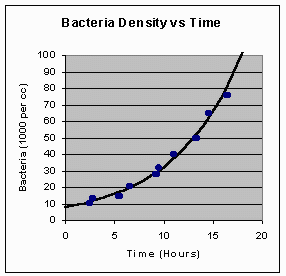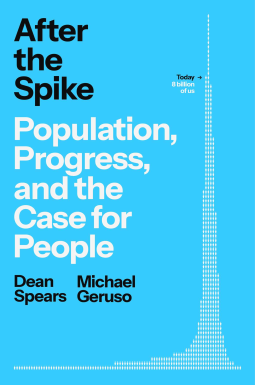Before looking at a detailed map, I figured one could hug the Caribbean coast from Guatemala to Panama.
Not so.
Central America's eastern coastline has few roads and is covered with swamps and dense rainforests. The most intriguing places are Mosquitia and the Darien Gap. Both are vast wildernesses that I hope to visit someday soon because time is running out.
Consider these facts about Central America:
- Central America is the size of France or Texas (I like reminding the French that their country is the same size as Texas).
- Central America has only 0.5% of the world's land mass, yet 7% of the world's species.
- In 1950, tropical rainforests covered about 60% of Central America. Today, it's about half.
- The worst offender is El Salvador, which cut down 95% of its forests.
In other words, pristine areas, like the wilderness in Central America's east coast, will someday disappear and have highways going down them. Why is that?
Who should we blame?
It's always fun to blame evil, greedy corporations, and short-sighted politicians. Our new sport nowadays is to blame China and India for our accelerating environmental problems and the loss of rainforest.

Therefore, before we point the finger at the corporations and politicians, remember that our actions drive the world. Just looking down the toilet paper aisle in a supermarket is telling: there's usually one brand of recycled toilet paper costing twice as much as the 20 brands of virgin toilet paper. If we cared, it would be the opposite. That would happen if we'd demand that our government impose a stiff tax on virgin paper so that it becomes three times more expensive than recycled paper. However, few want that.
Cruising towards one trillion humans on the planet
A related problem is that we keep reproducing. We add nearly half a million people to the planet every day and each new human will consume tons of coal, petroleum, meat, fish, and trees over his or her lifetime. Between now and 2020, we'll add another billion people on the planet.
As Thomas Friedman points out, if each one of those billion people wants to turn on a 60-watt bulb for four hours a day, we will need to build 20 new 500-megawatt coal-burning power plants! Notice that these power plants don't address any of their other energy needs; they need to be built just so that the new billion can power one stupid light bulb.
Each new human generates tons of pollution and trash. Even if we miraculously cut our per capita consumption in half, weʼre doubling the population every few decades. There were three billion humans on the planet when I was born, we'll have seven billion in 2012. To decrease our global environmental impact, we would have to decrease our per capita impact exponentially to offset the exponential population growth. Instead, our per capita impact is increasing.
Even if we manage to drastically decrease our growth rate so that we only double once every 70 years, in just 280 years we'll have 112 billion humans on the planet.
If you told Christopher Columbus that we would have 7 billion humans in just 500 years, he would have laughed you off. However, if we could cut our growth rate to just 1% a year, then in 500 years will have over one trillion humans on the planet.
Like Christopher Columbus 500 years ago, you're probably shaking your head saying it's impossible. A caveman couldn't believe we could reach one million. Those who lived when we had one million thought one billion would be impossible. To us, even just 112 billion seems impossible, let alone one trillion! However, like every organism, we will do whatever it takes to get there.
Our ability to extend life and make ourselves nearly immortal through stem cell innovations and robotics will allow people to live hundreds of years, further putting pressure on the planet's resources.
My point is that environmentalists blab on and on about driving a small car, turning off your lights, buying bamboo, and recycling your newspaper. While these actions are nice, our population growth obliterates any of those incremental savings. In short, the dirty little secret that few environmentalists talk about is that population control is the most effective way of minimizing human impact. We could someday all live like Donald Trump if our world population was declining. Environmentalists don't talk about overpopulation because they would lose many of their supporters if they did.
Some say, "Don't worry, the population growth rate is decreasing." Population declines are regional and temporary. I'm currently in Eastern Europe where the population is indeed declining. So what's happening? Governments are panicking and giving huge incentives to reproduce (e.g., 18 months of paid maternity leave).
People are responding. Estonian reproduction, for example, has soared in the past 5 years, so that now its population has resumed its exponential growth. Estonia now has the fourth highest reproduction rate in Europe and is #1 in Eastern Europe. Russia's leaders are also making a big push to encourage reproduction. Similarly, Hong Kong is worried about having too many old people, so its government is encouraging Chinese to have 3 children.

How will the Central American rainforests look when we have 112 billion humans? How about a trillion? So, again, who should we blame?
Don't blame corporations. If you worked at International Paper, would you market environmentally friendly products that few could afford (or that you would have to sell for at a loss)? If you didn't make a competitive product, nobody would buy it, you'd go out of business, you'd be out of a job, and your family would suffer. Our purchases drive the behavior of corporations, not the other way around, so don't blame them. Yes, they advertise heavily, but I have yet to have a corporation putting a gun to my head demanding that I buy their products.
Don't blame politicians either. We get what we ask for. Imagine if Obama had said, "I want to impose a tree tax that triples the price of paper and meat to save our forests! I want a stiff fish tax to stop overfishing and clean up our water! I want gas to go up to $10 a gallon, so we drive small cars or take public transport! I want to tax coal so that it triples your energy bill! I want to repeal the tax credit on children and instead impose a tax increase on them, so we lower our global impact and save the planet!" Would you have voted for him? Don't blame the politicians.
I just wish more people took responsibility and said, "Yeah, our rainforests are disappearing and it's my fault. I like to live the way I do and that's just the price we pay." That's at least more honest than lamenting the loss of wild habitat, protesting about global warming, complaining to your Senator, and then continuing to drive cars, fly planes, eat a non-vegetarian diet, have kids, consume tree products, and buy power from nonrenewable sources.
I'm not saying you shouldn't do all those activities or that they're wrong in any way. I'm just saying that if you do any of them, don't complain about the global consequences. Take responsibility. Next time you hear someone complaining about the environmental problems raise your hand and say, "I'm sorry, it's my fault. Blame me."
Jesus said, "Let him without sin cast the first stone." When it comes to the environment, there's a lot of stone throwing going on. We often like to pick on issues that we're good at and often ignore the ones we're not good at. For example:
- If we recycle religiously, we complain about those who don't, ignoring the fact that we don't buy recycled products.
- If we buy recycled products, we complain about those who don't, ignoring the fact that we have kids.
- If we avoid having kids, we complain about those who reproduce, ignoring the fact that we often fly jets.
- If we avoid flying, we complain about those who do, ignoring the fact that we buy a power from a nonrenewable source or drive a vehicle that gets less than 40 miles per gallon, etc...
We're all guilty. If you must point fingers, point them at yourself. Let's blame others less and (if the environment is important to you) change our own habits more. Do your best, but don't expect others to do the same. You'll never be perfect and neither will the human race.
Two positive messages
It's easy to read this article and conclude that it's depressing. However, there are two reasons to be optimistic.
First, you're empowered. Too often people say, "The world's going to hell and it's all because of the selfish politicians and corporations!" I hope this article helps you realize that you drive politicians and corporations. If anyone is to blame, it is you and me. Because we're responsible for the state of the world, the good news is that you have the ability to change it.
Second, we're nowhere near being overpopulated. The telltale sign that a species is overpopulated is when its population starts to decline. This happens when it has exceeded the carrying capacity of the ecosystem. Through technology, humans have always found ways to increase the carrying capacity of this planet. For thousands of years, people have predicted that we have reached the carrying capacity and that soon nature's resources will be depleted and we will experience a massive decline in the world population. This has never happened.
Current pundits erroneously believe that our carrying capacity is 12 billion humans. That's true if you assume little or no technological progress. However, once you understand the exponential growth of our technology, you'll start to realize why there's no good reason to believe that we can't pack 120 billion on this planet. Of course, someday we will hit the carrying capacity, but it will be several multiples of 12 billion. So don't use the term overpopulated until you hear the news report that the year ended with fewer people than it began.
Yes, many species will go extinct and wild places will vanish as humans continue to expand and grow, but that's what life does. If you don't like it, take responsibility, and do what you can to slow down or reverse the expansion of our species.
Lastly, I have nothing against people who have one baby or 69 babies. I am not frustrated or angry by the way anyone chooses to live their life. I only dislike when someone complains without admitting that they are part of the problem too.
That's the lesson I learned when I watched the remaining jungles in Central America slowly, yet consistently, vanish.





